KáaSháyee
Creating Connections: Art, Community, Heritage
Gratitude and honor to the Lhaq’temish people
With a heart shaped by humility and a mind open to reflection, I extend my acknowledgment to the Lummi Nation, known also to themselves as the Lhaq’temish people or the Salmon People. These original stewards of the land—where I live, learn, and contribute to my community—hold a history as rich as the forests and a spirit as enduring as the river. I recognize the historical injustices they have endured, injustices that also touch upon the history of my own Tlingit people.
I am Káa Sháyee, a Tlingit Alaska Native residing in Ferndale, Washington, where I have built a life for three decades. My journey is interwoven with the tradition of the Tlingit, a culture that continues through my daily practices. While I make my home on Lummi land, the shared history and experiences of Indigeneity connect us in resilience, the responsibility of cultural guardianship, and a deep respect for our Mother Earth.
Both the Lummi Nation and my Tlingit people have faced histories of forced relocation and cultural suppression. The Treaty of Point Elliott of 1855 marks a significant point in Lummi history, symbolizing the loss of their sovereignty—a history that finds echoes in the narrative of my Tlingit ancestors.
In my daily life and community engagement, I aim to be a voice for those who have been silenced and an advocate for the resurgence of our Indigenous cultures. Inspired by the wisdom of my ancestors, my actions honor the enduring spirit of the Lummi Nation and the many Indigenous nations that walk the path of resurgence and healing.
As I interact with this land, each day is a tribute to its original caretakers. I live in harmony with the Lummi Nation’s ancestral wisdom, which instills in me a deep respect for the collective histories, spiritual journeys, and narratives of perseverance that define us as Indigenous peoples.
With every step I take on this land, I affirm the Lummi Nation’s unbreakable connection to it. I extend the deepest roots of my respect not only to the Lummi but to all Indigenous peoples, near and far, whose stories of resistance and renewal guide our collective journey.
I invite others who share this land to join in a journey of mutual learning, introspection, and active engagement. Together, let us honor the Lummi Nation and all Indigenous communities by respecting their rights, recognizing their histories, and valuing their enduring cultures.
